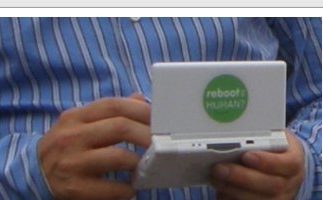Talk:Alan Kay – Wikipedia, the free encyclopedia
I was just checking the Alan Kay article on Wikipedia, and I switched to the Talk page, to find a comment by the man himself…
He makes this interesting point:
But today, it matters not that Smalltalk was an “improvement on its successors” (as Tony Hoare said about Algol). None of the so-called OOP languages around today are above threshold to deal with programming in the 21st century. I think this is a huge problem, that is made more severe by the vocational temptations to “get good at something bad” in order to make a living. This has produced a staggering legacy of moribund code, that makes it hard for young people especially to think about qualitatively better ways to proceed.
Very well put, but do we have alternatives today? I have no idea.
I remember a BYTE magazine cover story from 15 years or so ago, “There is a silver bullet”. That “silver bullet was OOP. Maybe it was, but the challenges of software development has also changed. Today we slave away using the same patterns again and again, it’s not exciting writing database access classes and wire them up to the UI, usually starting from scratch, since the new app you’re doing, is slightly different.
Currently people are looking into alternatives to C++ like languages, like Python and Ruby, but they’re still rather traditional. But these languages do seem to have some great frameworks, like TurboGears and Rails.
What I really find interesting is a video where Steve Jobs is demoing NeXTSTEP version 3, he’s demoing amazing application development without any coding at all! Why didn’t this catch on?
Another problem. The traditional web has been a nightmare in terms of usability, due to the fact that everybody basically has been writing their own custom UI.
What the web really is, is a list of connected links, URLs/URIs. What we need to start doing is to assign more meta-data to links, so that we can stop using the browser.
RSS feeds are a step in that direction. Direct links to media files and especially streams is another. After somebody posted a collection of direct links for the Danish Broadcasting Corporation’s (DR) radio streams, so that I could use the VideoLAN Client (VLC) to listen to music, I’ve finally bothered with it. Why oh why does the media companies develop their own embedded players, it’s a serious nightmare and completely un-called for.
